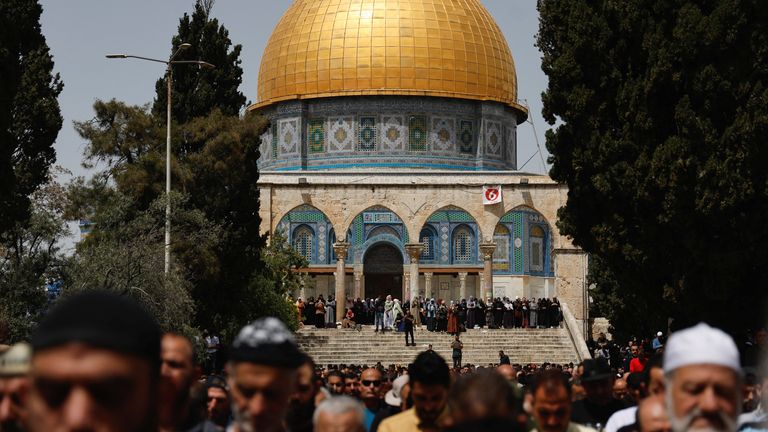

Jerusalem is a city of religious significance for both Muslims and Jews. The Temple Mount, which houses the Al-Aqsa Mosque and the Dome of the Rock, is a holy site for Muslims, while the Western Wall, also known as the Wailing Wall, is a sacred place for Jews. The tension between Muslims and Jews over Jerusalem's holy sites has been a persistent issue for centuries.
History
Jerusalem has been a focal point for religious pilgrims for thousands of years, and the city's holy sites have been a source of conflict between different religious groups. After the Arab-Israeli War in 1948, Jordan took control of the Old City of Jerusalem, including the Temple Mount. During this period, Jews were not allowed to visit the Western Wall, and the Al-Aqsa Mosque became a symbol of Palestinian nationalism.
In 1967, Israel captured the Old City of Jerusalem, including the Temple Mount, in the Six-Day War. Since then, Jews have been able to visit the Western Wall, while Muslims have continued to use the Al-Aqsa Mosque for prayer. However, tensions over the ownership and control of the holy sites have continued.
Recent Tensions
In recent years, tensions between Muslims and Jews over Jerusalem's holy sites have increased. In 2017, Israel installed metal detectors at the entrance to the Al-Aqsa Mosque, sparking protests and violence. The metal detectors were eventually removed, but the incident highlighted the sensitivity of the holy site.
In May 2021, tensions flared up again when Israeli police clashed with Palestinian protesters at the Al-Aqsa Mosque. The incident led to a flare-up of violence between Israel and Hamas, resulting in dozens of deaths.
Solutions
Finding a solution to the tension over Jerusalem's holy sites is a complex issue that requires political will and compromise from both sides. One potential solution is to create a joint administration of the holy sites, where representatives from both the Muslim and Jewish communities are involved in the management and decision-making process.
Another solution could be to establish a shared sovereignty arrangement, where both Israel and the Palestinian Authority have joint control over the holy sites. This would require significant political and diplomatic efforts, but it could help to reduce tensions and promote cooperation between the two communities.
Final Thoughts
The tension between Muslims and Jews over Jerusalem's holy sites is a complex and long-standing issue that has been a source of conflict for centuries. Finding a solution to this issue requires political will, compromise, and a commitment to peaceful coexistence. By working together, the Muslim and Jewish communities can create a brighter future for Jerusalem and its holy sites.
Is this content hitting the mark for you? If so, consider supporting my work—buy me a virtual coffee! ☕ Your support keeps the ideas flowing. Thanks so much! 🙏 Please Contribute via GoGetFunding
Kirill Dmitriev, head of Russia's sovereign wealth fund and economic envoy for US-Russia relations, has…
Vanessa Trump, born Vanessa Kay Pergolizzi on December 18, 1977, is a former model and…
Gold prices reached an all-time high on Thursday, surpassing $3,000 per ounce, as investors, alarmed…
The ongoing negotiations between the US and Ukraine regarding a minerals deal have hit a…
Fitness expert Jillian Michaels is leading the charge for a massive overhaul of the American…
Russia has officially presented a set of peace demands to the United States in an…